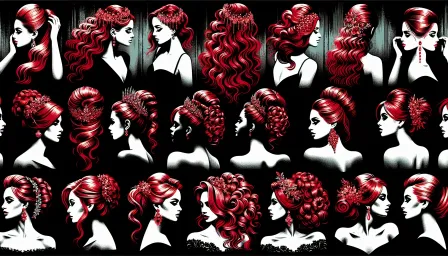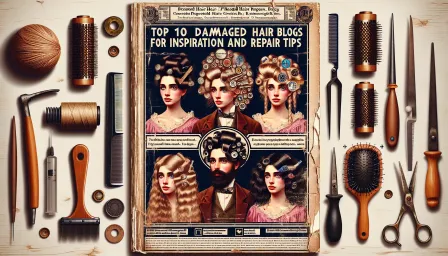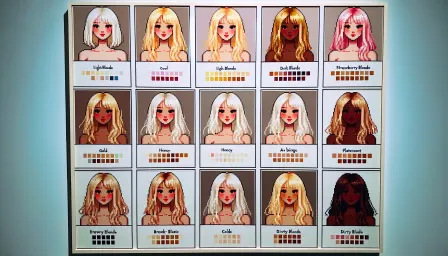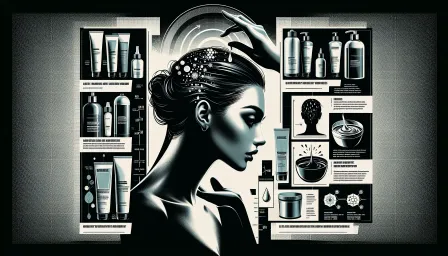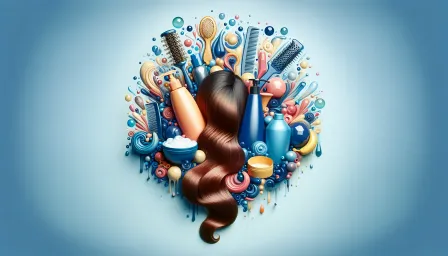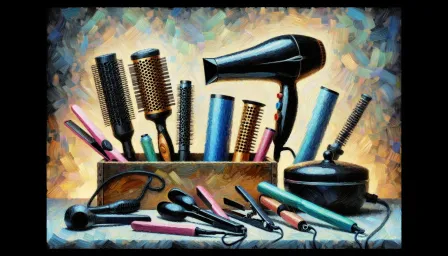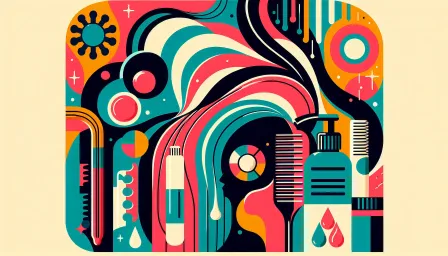Black Hair Myths Debunked: The Truth About Common Misconceptions

Discover the truth behind common black hair myths. Our well-researched article debunks misconceptions and provides valuable insights for your hair care routine.
Hair care is a crucial aspect of personal grooming, and for individuals with black hair, it often comes with a slew of myths and misconceptions. In this article, we aim to debunk these black hair myths, presenting a factually accurate and well-researched understanding of black hair care. Whether you are looking to improve your current routine or start a new one, this informative guide is designed to provide authoritative insights and practical solutions.
Common Myths and Misconceptions About Black Hair
Myth 1: Black Hair Doesn't Grow
One pervasive myth is that black hair doesn’t grow or grows more slowly than other types of hair. The truth is, black hair grows at the same rate as other hair types—approximately half an inch per month. The difference lies in the curl pattern, which can make length retention challenging. Ensuring proper moisturization and minimizing breakage is key to retaining length.
Myth 2: Black Hair Is Naturally Strong and Coarse
Another common misconception is that black hair is inherently strong and coarse. While black hair can appear robust, it is actually quite fragile and prone to breakage due to its curly structure. Each curl represents a potential weak point where the hair can break, making gentle handling essential.
Myth 3: Black Hair Needs to Be Washed Less Frequently
Many believe that washing black hair less frequently is better for its health. However, infrequent washing can lead to a buildup of products and dirt, which can hinder scalp health and hair growth. Finding a balance is crucial—typically, washing every one to two weeks works well for many individuals, depending on their hair type and lifestyle.
Myth 4: Oils and Butters Are the Best Moisturizers for Black Hair
There is a widespread belief that oils and butters are the best moisturizers for black hair. While they play a significant role in sealing in moisture, they do not actually hydrate the hair. Water-based products are necessary for true hydration, and oils and butters should be used to lock in that moisture.
The Truth About Black Hair Care
Proper Hair Care Routine
A well-rounded hair care routine is essential for maintaining healthy black hair. This includes regularly cleansing the scalp, conditioning the hair, using protein treatments to strengthen the hair shaft, and moisturizing properly to retain elasticity and prevent breakage.
Importance of Moisture
Moisture is vital to keep black hair healthy and manageable. Use water-based moisturizers and hydrating conditioners to infuse your hair with necessary moisture. Follow up with natural oils or butters to seal that moisture in. Regular deep conditioning treatments are also beneficial to keep your hair hydrated.
Protective Hairstyles
Protective hairstyles like braids, twists, and updos can help minimize manipulation and reduce breakage. However, it's essential to ensure these styles are not too tight to avoid tension on the hair and scalp, which can lead to traction alopecia.
Scalp Health
Maintaining a healthy scalp is crucial for hair growth. Regularly exfoliate the scalp to remove buildup and improve circulation. Use gentle, sulfate-free shampoos to avoid stripping the scalp of its natural oils.
Debunking More Myths
Myth 5: Natural Hair Isn't Professional
The notion that natural black hair isn't suitable for professional environments is outdated and rooted in cultural biases. Natural hair can be styled in numerous professional ways, from neat braids to sophisticated updos. Embracing natural hair in the workplace has become increasingly accepted and celebrated.
Myth 6: Heat Styling Is Always Damaging
While excessive heat styling can damage hair, occasional use with proper precautions can be safe. Using a thermal protectant and maintaining moderate temperatures minimizes the risk of heat damage. It's important to balance heat styling with regular moisturizing and conditioning treatments.
Myth 7: Trimming Hair Makes It Grow Faster
Trimming hair does not accelerate growth; rather, it helps to maintain healthy ends and prevent split ends from traveling up the hair shaft. Regular trims, typically every 6-8 weeks, can help retain length by reducing breakage.
Expert Tips for Black Hair Care
Use Gentle Tools
Opt for wide-tooth combs and detangling brushes specifically designed for curly hair to minimize breakage. Avoid using fine-toothed combs, which can cause unnecessary stress on the hair.
Stay Hydrated
Hydrating from the inside out is crucial. Drink plenty of water, as internal hydration positively impacts the health and elasticity of your hair.
Protect at Night
Utilize silk or satin bonnets, scarves, or pillowcases to reduce friction while sleeping. This helps preserve moisture and reduces the risk of breakage and frizz.
Seek Professional Guidance
Consult with a professional hairstylist experienced in black hair care for personalized advice. They can recommend the best products and techniques tailored to your unique hair needs.
Conclusion
Understanding and debunking common myths surrounding black hair is vital for proper hair care. By adopting fact-based practices and dispelling misconceptions, individuals with black hair can enjoy healthier, more manageable hair. Armed with the right information and tips, you can develop a hair care routine that works effectively for your unique needs.




